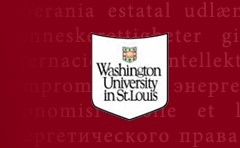Protecting Workers as a Matter Principle: A Latin American View of U.S. Work Law
Publication Title
Washington University Global Studies Law Review
Abstract
Scholars have noted that judicial conservatism has eroded labor and employment law (hereinafter referred to as “work law”) in the U.S. and elsewhere. The Roberts Court has maintained, and perhaps augmented, the Court’s conservative outlook, deciding a number of key work law cases in favor of employers. Moreover, the pro-employer judicial hue over recent work law cases comes on the heels of recent legal scholarship calling for a rethinking of the “idea of labor law,” the demise of the standard employment contract, and a surge in precarious jobs. Work law, which has always been under attack, has had better days in the U.S.; however, work law has experienced a rebirth in Latin America after years of neoliberalism and authoritarian rule. There may be lessons that can be drawn from the Latin American experience for the U.S. and other jurisdictions where work law has suffered setbacks.
One of the key institutionalized methodologies that has helped to reconstruct work law in Latin America has been the use of legal principles. This Article discusses the principle of protection, which is perhaps the central pillar of Latin American work law. Under this principle, one of work law’s essential functions is to protect workers because they are “weaker parties” whose human dignity is at stake.
Jurists in Latin America operationalize the protective principle through the rule of in dubio pro operario, which essentially means that a judge or other adjudicator must rule in favor of the worker when confronted with hard cases. In dubio pro operario compels adjudicators to limit their discretion in a manner consistent with the protective principle.
After describing Latin American work law’s protective principle, the authors turn to U.S. work law, namely scholarship, the Thirteenth Amendment of the U.S. Constitution, the Fair Labor Standards Act (FLSA), and the National Labor Relations Act (NLRA) to explain how a Latin American labor judge would likely find and apply the protective principle in the U.S. The authors argue that a Latin American labor judge would first find a constitutional mandate to protect workers in the Thirteenth Amendment of the U.S. Constitution. The Thirteenth Amendment’s ban against involuntary servitude stems from a larger constitutional goal of safeguarding human dignity. The protective principle also safeguards human dignity; therefore, the Latin American labor judge would feel compelled to interpret existing work law in a manner consistent with that constitutional mandate to safeguard human dignity. A Latin American labor judge would also recognize that the FLSA and the NLRA attempt to equalize bargaining power between workers and employers. Therefore, a labor judge would also find the protective principle in those two laws.
The authors further argue that Latin American labor jurists would recognize that a canon of statutory interpretation, such as in dubio pro operario, sometimes prevails in the U.S under the common law maxim that “remedial statutes should be interpreted liberally.” However, a Latin American jurist would recognize that work law deserves perhaps an even more “liberal” interpretation than other statutes because work law aims to safeguard human dignity and to equalize bargaining relationships—high-order goals which other statutes may not have.
The authors recognize that U.S. courts do not always interpret work law in the manner most favorable to the worker. Courts fail to protect workers because, among other reasons, common law judges are not trained to seek and understand the specific legal principles inherent in U.S. work law. Moreover, the unique American employment-at-will doctrine further weakens work law. Employment-at-will should be statutorily rescinded to provide a more clearly protective work law in the U.S.
The authors conclude by arguing that despite the legal-cultural differences between the U.S. and Latin America, a protective principle exists in the U.S.; however, it has been recognized in a spotty fashion by the courts.
Recommended Citation
Sergio Gamonal C. and César F. Rosado Marzán,
Protecting Workers as a Matter Principle: A Latin American View of U.S. Work Law,
13
Wash. U. Global Stud. L. Rev.
605
(2014),
https://openscholarship.wustl.edu/law_globalstudies/vol13/iss4/5
